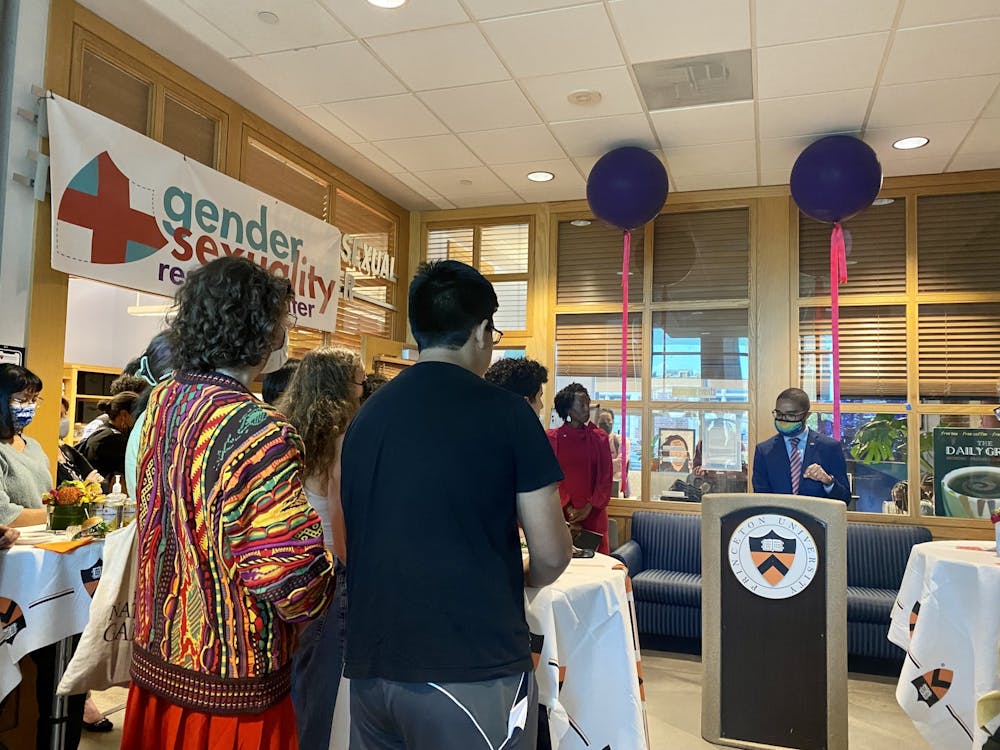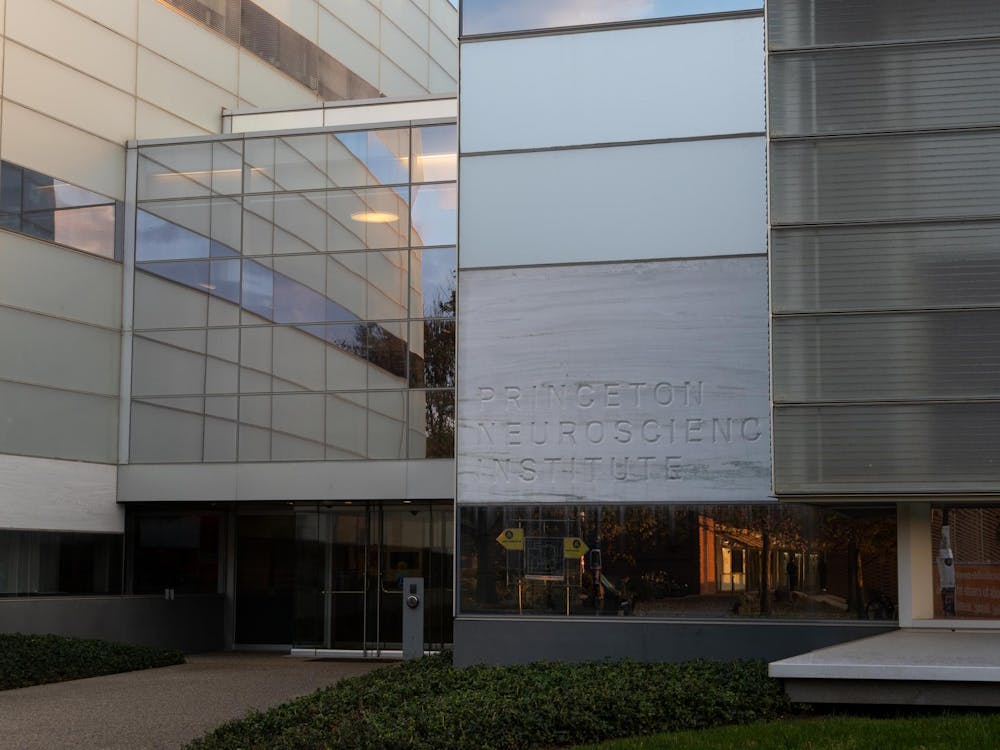On Monday, Sept. 27, the Gender and Sexuality Resource Center (GSRC) officially opened its doors, marking the physical and ideological unification of the former Women*s and LGBT Centers.
One of the top priorities for the center, located on the second floor of Frist Campus Center, is creating a co-curricular experience by leveraging the resources of the Program in Gender and Sexuality Studies and other departments.
“Students who are learning these incredible theoretical ideas in the classroom could also engage in on-the-ground types of work and projects, whether that be internships or study away programs,” said Assistant Dean of the Office of Diversity and Inclusion and the new GSRC Director Kristopher Oliveira.
“That can become something like a co-curricular transcript where students can say… I work through these things and I have a sense of organizing … of social advocacy … of what it means to address these types of issues,” he said.
The launch party included food, balloons, free sweatpants, and speeches by Vice President for Campus Life Rochelle Calhoun, Dean of the Office of Diversity and Inclusion LaTanya Buck, and Oliveira. They spoke about the legacy of the two respective centers and what their fusion means for the future.
“We are called to be really attentive to the nuances of the intersections of gender and sexuality,” Oliveira said in an interview with The Daily Princetonian. “In this new structure, we're really able to be attentive to the experiences of trans women of color, the more contemporary issues that women and femme folks and queer and trans folks face.”
Manar Talab ’23 lauded this decision, claiming that the merger allows queer and trans students to utilize the affinity space “without outing yourself.”
“It’s so all-encompassing; everyone can feel comfortable even if they aren’t completely comfortable with their identity,” Talab said.

But some students expressed concern that uniting the two centers may diminish some voices.
“It used to be the Women*s Center and now it’s gender,” Ian Fridman ’25 said. “That might take over a bit of spotlight from the necessity that we have towards creating spaces for women specifically.”
The center plans to continue hosting peer-led affinity groups and mentoring programs, like “Q’necctions” and Gender Group — a program which Jaelin Haynes ’23 said she is particularly excited about.
“Meeting more women on campus that are also looking for community, that’s really a great thing to have,” she said.

Beyond programming, many students spoke about hanging out or studying within the space, which is complete with comfortable couches, a TV, and multicolored murals. Some, like Rodolfo Pineda ’25, expressed enthusiasm about socializing there.
“We’re still acclimating as ’25s, so this is a really conducive environment for doing just that — getting to meet people and then making that connection,” he said.
Fridman agreed, emphasizing that the space allows students to bond over shared experiences and embrace their identities.
“A lot of the people in the center have identities that aren’t perhaps as privileged and it’s likely that many of them, of us, went through a lot of things that weren’t very nice growing up, having to deal with shame, internalized trauma, transphobia, homophobia, sexism in the world,” he said. “I think it’s very important for us to be able to create an environment that’s welcoming to everyone and spread kindness in a world that didn't do that for us.”
The center opening comes amid a call by the Princeton Pride Alliance (PPA) to allocate more resources into the mental health and well-being of trans, queer, and femme students. In an op-ed to the ‘Prince,’ the PPA demanded more funding for therapists, staff, and various accommodations that will help serve these students.
Oliveira wrote an op-ed in response, but did not directly address PPA’s demands.
When asked about PPA’s calls in an interview with the ‘Prince,’ Oliveira said that he is still gauging the needs of the community, feasibility of projects, and strength of ongoing initiatives. He has yet to connect with senior administrators about the demands.
“Right now, my responsibility is to make sense of the space between what the students have asked for, and what initiatives already are on campus to figure out what that gap really is,” Oliveira said.
Izzy Jacobson is a news and features contributor for the ‘Prince.’ She can be reached at ijacobson@princeton.edu and @izzyjacobsonn on Instagram.








